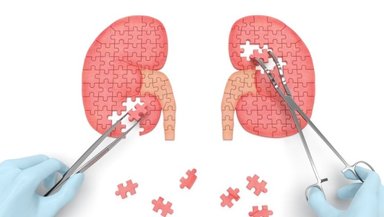Checklist of Questions to Ask Your Urologist Before Signing Up for Stone Removal Surgery

Medicine Made Simple Summary
Kidney stone surgery can feel overwhelming when you do not know what to ask your doctor. Many patients in India agree to procedures without fully understanding their options, costs, risks or follow-up steps. Asking the right questions helps you make confident and informed decisions. This article provides a clear, patient-friendly checklist of questions you should discuss with your urologist before surgery. It explains why each question matters and what answers you should look for. By the end, you will feel better prepared, safer and more in control of your treatment.
Why Asking Questions Is So Important Before Surgery
Kidney stones cause severe pain, anxiety and urgency. In that moment, many patients feel pressured to agree to surgery quickly, just as patients noticing signs of kidney failure may feel rushed when discussing long-term treatment options. Some worry that asking questions will annoy the doctor. The truth is very different. A good urologist welcomes questions because it means you want to understand your treatment. Asking questions protects you from unnecessary procedures, helps you compare hospitals and ensures you receive the safest and most effective care. Your body, your health and your money deserve clarity. When you understand what the surgery involves, the entire experience becomes calmer and less confusing.
Understanding Your Stone Before Discussing Surgery
Before agreeing to surgery, you should clearly understand the size, location and type of your stone. These three details decide whether your stone can pass naturally or whether it actually needs surgery. Many patients never see their scan or do not understand it. A good urologist explains your imaging clearly and even shows the stone’s position. When you know exactly what is happening inside your body, the next steps feel easier. Knowing whether the stone is stuck, moving or too large helps you judge the urgency of treatment.
Question 1: Is Surgery Truly Necessary for My Stone?
This is the first and most important question. Not all kidney stones require surgery. Many small stones pass naturally with medicines and hydration. Some stones do not cause blockage or damage. Some stones can be monitored safely. Ask your doctor whether your stone can pass naturally and how long you can safely wait. Ask what risks you face if you do not choose surgery immediately. A responsible doctor explains the pros and cons calmly rather than pressuring you. Understanding whether surgery is essential helps you avoid unnecessary procedures.
Question 2: Which Surgery Method Do You Recommend and Why?
There are different procedures for kidney stone removal, such as shockwave therapy, ureteroscopy, laser lithotripsy and PCNL. The right treatment depends on your stone’s characteristics. Ask why the doctor prefers one method over another. A good explanation includes the stone’s size, location and hardness. When you understand the reason behind the recommendation, you feel more confident. It also helps you compare options if you consult another doctor.
Question 3: What Are the Risks and Success Rates of This Surgery?
Every surgery, even a simple one, carries risks. Understanding the risks helps you prepare and reduces anxiety, just as patients preparing for transplant learn about long-term risks and immunosuppressant side effects after kidney transplant. Ask your urologist about possible complications such as infection, bleeding or stent discomfort. Ask about the chances of full stone clearance in a single attempt. Some procedures may require a second sitting. A transparent doctor will explain this honestly. Knowing the success rate also prepares you for what to expect after surgery.
Question 4: Will I Need a Stent? Why or Why Not?
Stents are thin tubes placed temporarily to keep urine flowing. Not all surgeries require stents. Some patients receive stents only to prevent swelling. Others need stents because the stone was stuck or the ureter was irritated. Ask your doctor if you need a stent, how long it will stay inside and what symptoms you may experience. Understanding stent care reduces fear. Ask about the stent removal process and whether it involves an additional cost.
Question 5: What Will My Recovery Be Like?
Most patients want to know how soon they can return to normal life. Ask your doctor when you can resume work, travel or exercise. Ask whether you will have pain after surgery and how long it may last. Ask whether you need medicines after the procedure. Some patients feel burning during urination, frequent urges or mild discomfort due to stents. Knowing this in advance helps you prepare mentally and physically. A good doctor gives clear recovery guidelines.
Question 6: What Tests Are Required Before Surgery?
Pre-surgery tests are important for safety. They may include blood tests, urine tests, ECG and scans. Ask which tests are necessary and why. Ask whether the hospital includes these tests in the package or bills them separately. Understanding pre-surgery requirements avoids confusion on the day of admission and prevents last-minute delays.
Question 7: How Much Will the Surgery Actually Cost Me?
Costs vary widely across government hospitals, private hospitals and premium corporate centres. Ask your urologist for a clear estimate. Ask whether the price includes consultation, anaesthesia, OT charges, stent costs, room rent, medicines, disposables and follow-up visits. Ask about additional costs if complications occur. Cost transparency helps you make financially safe decisions and prevents unexpected bills later. Ask how much stent removal will cost if a stent is used.
Question 8: Does My Insurance Cover This Procedure?
Many insurance plans in India cover kidney stone surgeries. But details matter. Ask whether your hospital offers cashless treatment. Ask whether the room category affects coverage. Ask if you need pre-approval. Ask how much you may still need to pay out of pocket. Insurance can make treatment more affordable, but each policy has rules. Clarifying these details early prevents stress later.
Question 9: What Happens if the Stone Does Not Clear in One Sitting?
Some stones require more than one session. Hard stones may not break completely in one shockwave therapy session. Large stones may need staged laser treatment. Ask your doctor what happens if the stone remains. Ask whether the cost increases. Ask whether the plan includes backup options. A good urologist prepares you for all possibilities, not just the best-case scenario.
Question 10: How Will You Prevent Stones from Coming Back?
Kidney stones often recur. Without prevention, many patients develop stones again. A good urologist gives lifestyle advice, dietary guidance and hydration tips. Some patients may need a metabolic evaluation to understand their stone type. Ask your doctor how to reduce your personal risk. Prevention reduces long-term medical bills and protects your kidney health.
Question 11: Can I See My Scan and Understand My Stone?
Never hesitate to ask the doctor to show you your scan. It helps you understand what is happening inside your body. When the doctor explains the scan, you learn whether the stone is stuck, moving or causing blockage. This builds trust and increases clarity. When you see the stone yourself, treatment decisions become more meaningful.
Question 12: How Experienced Are You With This Procedure?
Experience matters. A urologist who has performed many similar surgeries handles complications confidently. You do not need exact numbers, but you can ask about their overall experience. A good doctor answers this honestly without hesitation. Experience affects safety, speed, success and comfort.
Question 13: What Should I Do Before the Surgery?
Preparing well helps ensure smoother surgery. You may need to fast before anaesthesia or stop certain medicines. You may need to avoid specific foods or increase hydration. Ask your doctor what to do the night before and the morning of surgery. Clear instructions reduce stress.
Question 14: What Should I Avoid After Surgery?
After surgery, certain activities may increase discomfort or delay healing. Ask whether you can travel, lift weights, work long shifts or ride a two-wheeler. Ask about diet restrictions. Ask whether you can exercise. Understanding what to avoid prevents complications.
Why These Questions Protect Your Health and Money
When patients do not ask questions, they feel confused and helpless. They may undergo unnecessary procedures. They may be overcharged. They may panic during recovery because they did not know what to expect. Asking questions gives you control. It reduces fear. It helps your doctor understand your concerns. Most importantly, it ensures safer and smoother treatment.
How to Have a Good Conversation With Your Urologist
Approach your doctor calmly. Share your symptoms clearly. Ask your questions one by one. If you do not understand something, ask again. Doctors respect patients who want to learn. A good conversation builds a strong doctor-patient partnership. When both sides communicate well, treatment becomes safer and recovery smoother.
Conclusion
If you have been advised kidney stone surgery, take charge of your health by asking the right questions. A short, clear discussion with your urologist can protect you from confusion, unnecessary procedures and unexpected expenses. Schedule a consultation, clarify your doubts and choose treatment with confidence. Your kidneys deserve careful, informed decisions. Begin your conversation today.





















